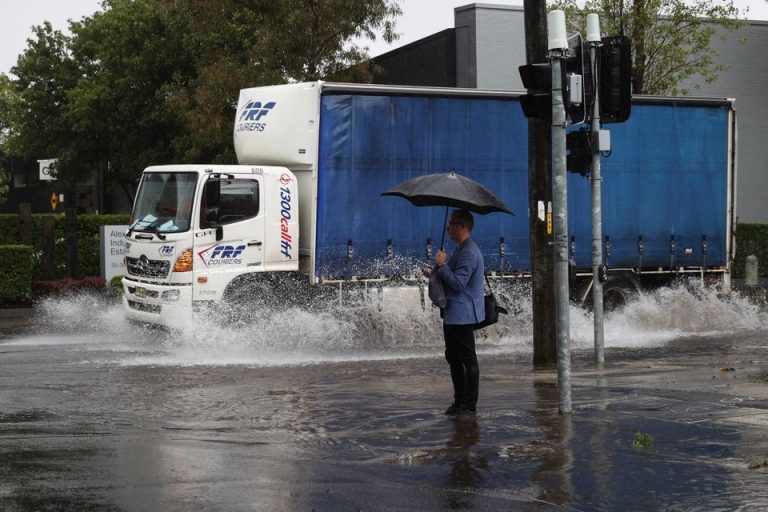
SYDNEY, (Reuters) – Heavy rains eased across Australia’s east on Monday, a slight relief for flood-weary residents but authorities warned another intense weather system could hit several inland regions bringing more downpours and triggering flash flooding.
Northern Victoria state, southern New South Wales (NSW) and northern Tasmania should brace for widespread rains of up to 100 mm (4 inches), about a quarter of Australia’s annual average, over two days from late Wednesday, the Bureau of Meteorology (BoM) said. “It is another big event … so we’re likely to see lots of moderate and possibly major flooding,” BoM forecaster Dean Narramore told the Australian Broadcasting Corp on Monday.
Even as blue skies returned to many places, more than 100 flood warnings remained across NSW, the worst-hit state from the latest rain event that began last week forcing many to flee homes, and inundating roads and farms.
“Just because the rain has stopped doesn’t mean the threat has eased as water is heading to our rivers and streams,” Narramore said. Evacuation warnings were issued over the weekend for several residents in the state’s rural inland regions and also in Sydney’s northwestern suburbs of Windsor and North Richmond.
“In remote NSW, they will be on edge for the next few days while we await another big system to arrive on Wednesday through to Friday,” NSW Emergency Services Minister Steph Cooke said.
Australia’s east coast weather has been dominated by La Nina, which brings more rain, resulting in frequent floods since early 2021 and the weather bureau predicts the phenomenon is likely to occur for a rare third straight year. Many dams and rivers are already full in NSW and Victoria states, home to more than half of Australia’s near 26 million population, and further falls across saturated grounds raise the risk of rapid flash floods.






